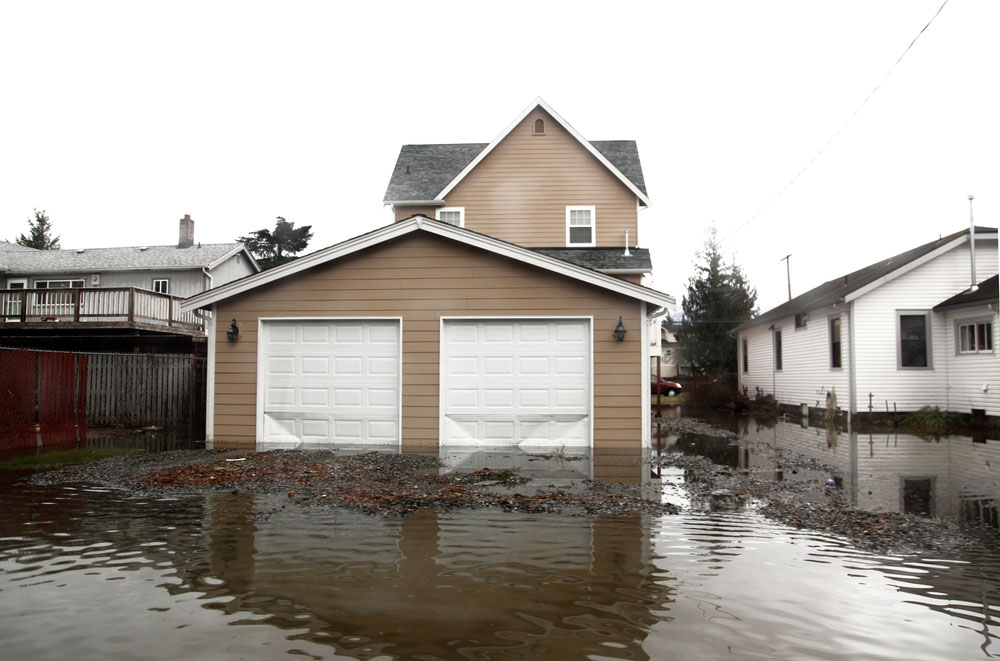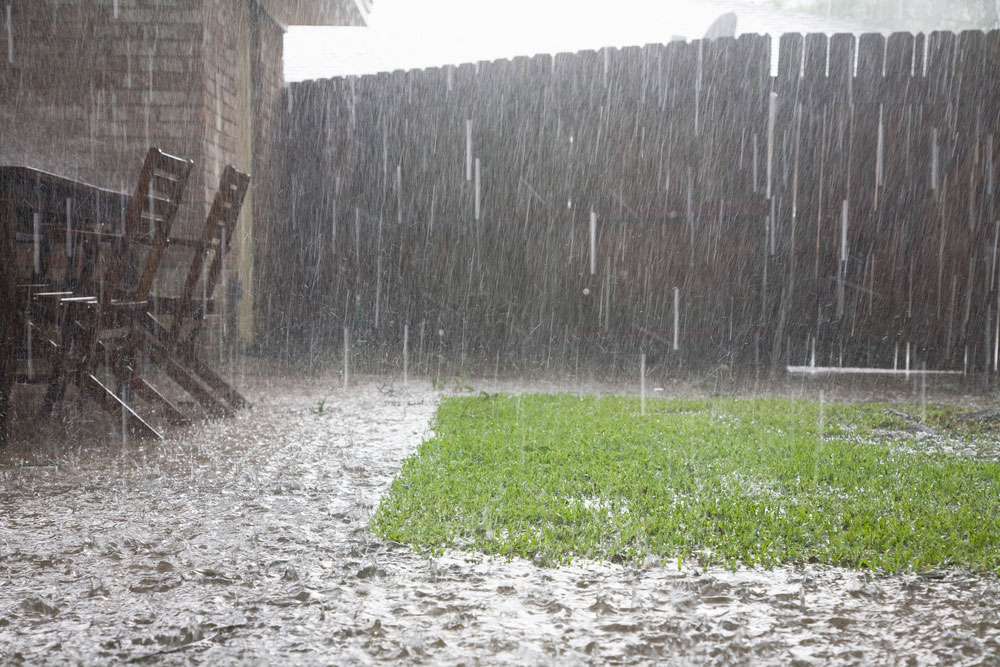Water in the soil around your home can put pressure on your foundation. This can cause cracks, leaks, and even structural damage. You may not think that clogged gutters and overwatering flower beds surrounding your home can affect its foundation. But if water starts to pool or saturate the ground next to your house, it can result in significant damage to your foundation. Water from heavy rainfall, flooding, plumbing leaks, and broken water lines can also saturate the soil around your home, which can weaken its load-bearing capacity.

How Too Much Water Can Cause Foundation Damage
There are three main ways that too much water can affect your foundation:
- Hydrostatic Pressure — When water from rainstorms, broken water lines, landscaping, and bedrock collects around your home, it will put “hydrostatic pressure” on your foundation. This can cause the foundation walls to crack and bow, which can result in leaks.
- Expansive Soils — Expansive soils can come in every state and can have minerals that absorb water, which will increase its volume. Expansive soils will push up against the foundation, which can cause cracks in the walls or floor. They will also shrink when they dry out. This repeated cycle of expansion and contraction can put stress on your home, which can cause damage that will get worse over time.
- Erosion — Rainwater and underground springs can wash away the soil supporting your foundation, which can cause it to settle. The early signs aren’t always noticeable. So, they can be easily dismissed — that is, until they become serious enough to call a professional. Some of these signs can include sinking, uneven floors, doors and windows that don’t close properly, drywall cracks, and tilting chimneys.
All of these can lead to serious foundation damage.
Signs Your Foundation Has Water Damage
It can be hard to notice a wet foundation, but there are some signs you can watch for that will tell you if it has water damage. That way, you can take the appropriate measures to get them taken care of early. Your home is full of a lot of complexities, and the easiest way to tell if your foundation has water damage is to look for the following signs:
- Moisture or Dampness — Your foundation is supposed to be clean and dry. When it gets damp, it can turn into an ideal environment for fungi and bacteria. So if your foundation walls constantly get damp or wet, there’s a good chance that water is seeping through. Do your best to find the source of the moisture, and take steps to take care of the problem as quickly as possible.
- Mold or Mildew — If you see streaks of mold and mildew on your walls, it’s a sign of water damage. Both of them thrive in damp and wet environments. So if you see any gray, white, black or green substances on your walls, there’s a good chance that mold has taken over. This can pose some serious health risks (such as respiratory complications and breathing problems). It can also cause wood to rot and can even damage your home’s structural supports.
- Foundation Cracks — Cracks can cause foundation problems, but they can also be a sign of water damage. Water located outside your foundation can put stress on the walls (which is referred to as “hydrostatic pressure”), and it can cause them to crack. Depending on their size, you may need anything from a minor repair to something more extensive.
- Wall Discoloration — Concrete is porous, so it can get discolored if groundwater stays on the surface. These stains come from minerals that form when water dries inside the concrete, which is usually the result of “efflorescence.” Any stains on your walls, carpet, or wallpaper is a sign that water has seeped through your foundation walls. But not all of them are caused by water. Mold can also leave black or grayish stains on your walls.
- Pungent or Musty Smell — Once mold or mildew has formed on your foundation walls, it will release a musty or pungent smell that will move up to your home’s living space. Some of them can also come from decaying wood or pest waste.

A puddle on the floor or a small crack on the walls is something that a lot of homeowners feel they can deal with, so many of them wait years before they even think about calling a professional. But if your foundation starts to crack, sink, or bow, the problem can seem more serious. The idea that the one thing keeping your home from collapsing has gotten damaged can be frightening. But in a lot of cases, the structural damage isn’t as bad as it looks. In fact, most problems can be solved with minimal disruption to your home with the use of foundation repair techniques and products.
If you’re looking for one of the best places for foundation repair in Corpus Christi, be sure to get in touch with Streem Foundation Repair.
